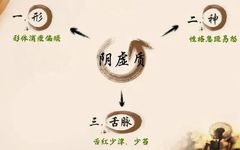Author: Chen Chuxiong, Sun Yat-sen Memorial Hospital, Sun Yat-sen University

Yin deficiency refers to a condition where there is insufficient Yin fluid in the body due to dysfunction of the organs, leading to symptoms such as thirst, dry throat, and internal heat. Common manifestations include flushed cheeks, hot palms and soles, night sweats, and a red tongue with little coating, often accompanied by constipation or dry stools. Individuals may appear thin, exhibit irritability, have short sleep duration, and experience dry eyes, fatigue, blurred vision, dizziness, tinnitus, and dry skin. In men, there may be nocturnal emissions, while women may experience scanty menstruation.
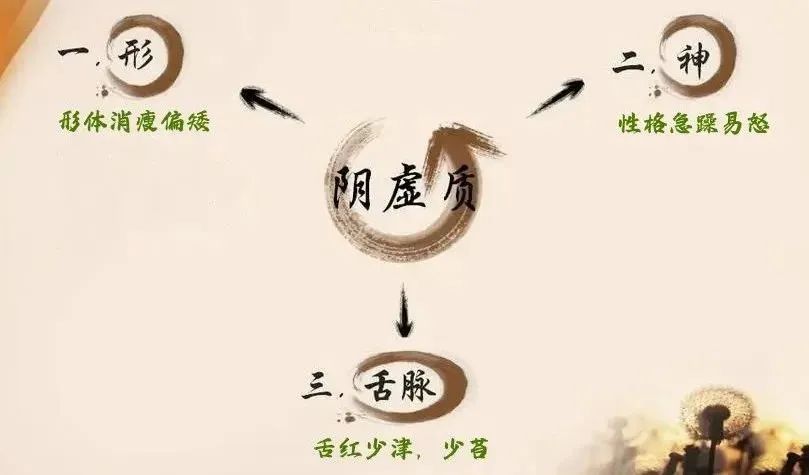
In daily life, we should conserve energy and protect our “Yin”. One should not assume that being energetic and physically strong allows for indiscriminate consumption of energy; often, we are overextending ourselves without realizing it. For instance, a long-term diet of spicy and warming foods can easily deplete the body’s fluids, exacerbating or promoting a Yin deficiency. Excessive exercise leading to excessive sweating can also result in significant loss of Yin fluid. Chronic illness, staying up late, and emotional instability can easily lead to a Yin deficiency.
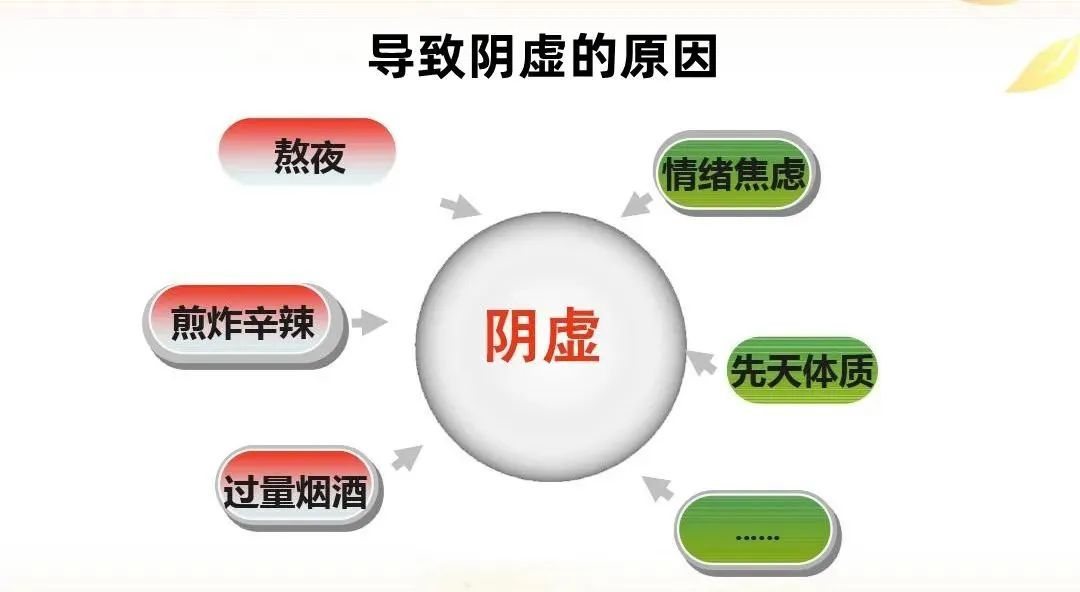
The key to nourishing a Yin deficiency is to replenish Yin, following the principles of nourishing Yin and clearing heat, as well as nourishing the liver and kidneys. Foods that are sweet and slightly cool are good companions for those with Yin deficiency. Recommended foods include: Yin Er (Tremella), Yan Wo (Bird’s Nest), Bai He (Lily Bulb), Lu Dou (Mung Bean), Er Pea (Pea), Bo Cai (Spinach), Zhu Sun (Bamboo Shoot), Kong Xin Cai (Water Spinach), Lian Ou (Lotus Root), Dong Gua (Winter Melon), Si Gua (Luffa), Ku Gua (Bitter Melon), Xigua (Watermelon), Zi Cai (Nori), Xue Li (Snow Pear), You Zi (Pomelo), Bai Luo Bo (White Radish), Dou Fu (Tofu), Dou Jiang (Soy Milk), Da Bai Cai (Napa Cabbage), Jiao Bai Sun (Water Bamboo Shoot), etc.
The following are ten herbs for nourishing Yin introduced by the Yixian pharmacist for your reference.
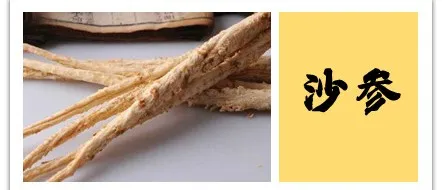
Sha Shen (Glehnia Root) is mentioned in ancient medical literature, later classified into two types in the “Compendium of Materia Medica” as Bei Sha Shen (Northern Glehnia) and Nan Sha Shen (Southern Glehnia). Both types have similar properties and effects, primarily used for Yin deficiency of the lungs and stomach. The main difference is that Bei Sha Shen has a stronger effect on nourishing the lungs and stomach, suitable for Yin deficiency with heat symptoms; while Nan Sha Shen also has the effect of benefiting Qi and resolving phlegm, making it more suitable for cough due to both Qi and Yin deficiency.
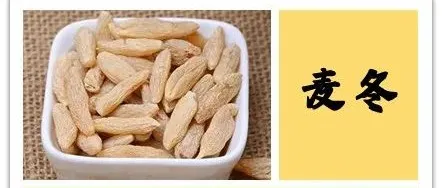
Mai Dong (Ophiopogon) is a perennial herb from the lily family with sweet and slightly bitter, slightly cold properties. It enters the lung and stomach meridians. It nourishes Yin, moistens the lungs, benefits the stomach, and generates fluids, clearing heat and alleviating irritability. It can be used for dry cough with phlegm due to Yin deficiency and heat, as well as for symptoms such as dry mouth and throat, constipation, etc. Mai Dong is also effective for Yin deficiency of the heart and can be used for insomnia and irritability due to heat.
Mai Dong and Tian Dong (Asparagus Tuber) are both Yin nourishing herbs, but many people cannot distinguish between them. Mai Dong is slightly cold and tends to nourish Yin fluid, while Tian Dong is very cold and tends to moisten dryness and clear heat. Mai Dong is more focused on supporting the body, while Tian Dong is more focused on expelling pathogens. Mai Dong nourishes lung Yin, as well as stomach and heart Yin.
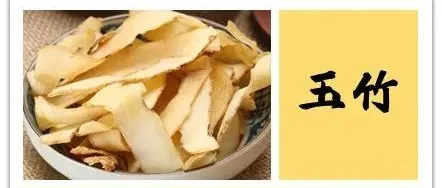
Yu Zhu (Polygonatum) is a perennial herb from the lily family. It has a sweet and slightly cold nature, with effects of nourishing Yin, moistening dryness, clearing heat, generating fluids, and stopping cough. It is primarily used for dry cough with little phlegm due to Yin deficiency, heat injury to fluids, and thirst. It can be used as a tonic and has health benefits.
Yu Zhu enters the lung and stomach meridians, nourishing the Yin of the lungs and stomach without being greasy, clearing heat without being excessively cold, making it suitable for treating dry cough and thirst due to Yin deficiency. It can also be used for external Yin deficiency in combination with exterior-releasing herbs, having the characteristic of nourishing Yin without retaining pathogens.
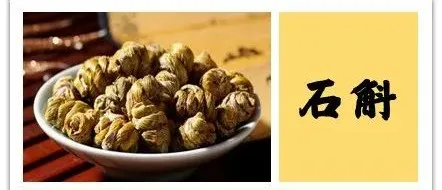
Shi Hu (Dendrobium) is first recorded in the “Shennong’s Classic of Materia Medica” as a top-grade herb, belonging to the category of Yin nourishing herbs. The variety known as Tie Pi Shi Hu (Iron-Skin Dendrobium) is considered the best due to its iron-green skin.
Shi Hu has a sweet and slightly cold nature. It enters the stomach, lung, and kidney meridians. Its functions include generating fluids, clearing the stomach, nourishing Yin, and clearing heat. It is used for heat injury to fluids, thirst, Yin deficiency stomach pain, post-illness heat, and Yin deficiency causing dim vision. The “Shennong’s Classic of Materia Medica” states: “It is used for injuries to the middle, dispelling obstruction, relieving qi, and nourishing the five organs, strengthening Yin, and prolonging life with long-term use.” Therefore, it is very effective for treating symptoms such as fluid deficiency, dry mouth, irritability, and a red or dry tongue. Shi Hu can also nourish the kidneys and improve vision, making it suitable for the elderly.
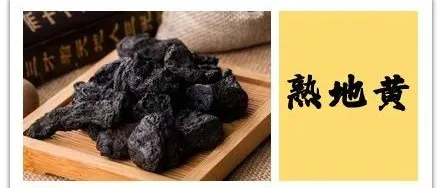
Shu Di Huang (Rehmannia) is a processed product of raw Rehmannia, characterized by its black, shiny surface, soft and flexible texture, sweet taste, and slightly warm nature. It has the effects of nourishing Yin, replenishing blood, and enriching essence. It is used for Yin deficiency of the liver and kidneys, soreness of the lower back and knees, tidal fever, night sweats, internal heat, thirst, blood deficiency, palpitations, irregular menstruation, dizziness, tinnitus, and premature graying of hair. Shu Di Huang is sticky in nature and may hinder digestion, so it should be avoided by those with weak spleen and stomach, qi stagnation, phlegm, abdominal distension, and loose stools.
The difference between Shu Di Huang and raw Rehmannia is that raw Rehmannia is cold in nature and functions to clear heat, cool the blood, nourish Yin, and generate fluids to relieve thirst; while Shu Di Huang has a slightly warm nature and its functions change to become a blood tonic, nourishing Yin and replenishing blood, used for blood deficiency and related symptoms.
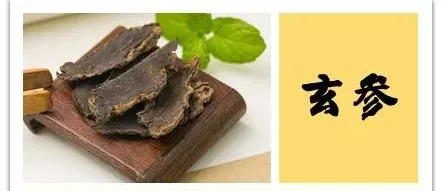
Xuan Shen (Scrophularia) is derived from the roots of the plants Scrophularia and Northern Scrophularia. It has a sweet, bitter, and salty taste, and a slightly cold nature, with effects of clearing heat, cooling the blood, nourishing Yin, and detoxifying. It is used for warm diseases with heat and blood, fever, thirst, red tongue, skin rashes, bone steaming cough, restlessness, fluid damage leading to constipation, blurred vision, sore throat, and lymphatic swelling. The “Compendium of Materia Medica” states: “Xuan Shen, possessing the nature of utmost Yin, is primarily used for warm diseases, and its bitter taste helps to drain and descend, thus treating heat accumulation in the organs.” Caution should be taken for those with dampness in the spleen and stomach or loose stools.
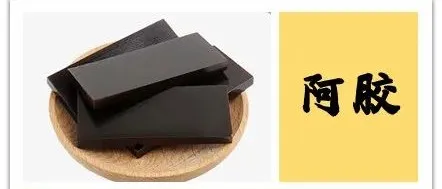
Ejiao (Donkey-hide Gelatin) is made from the skin of donkeys after hair removal. The earliest pharmacological text in China, the “Shennong’s Classic of Materia Medica”, records: “(Ejiao) is produced in Dongping County, made from boiled cowhide, originating from Dong’e.” Ejiao is a genuine medicinal material produced in Dong’e, and its name comes from its place of origin.
Ejiao is known as one of the “Three Treasures of TCM Nourishment” alongside ginseng and deer antler. It has the effects of nourishing blood, replenishing Yin, moistening dryness, and stopping bleeding. It is used for blood deficiency, dizziness, palpitations, irritability, and dry cough due to lung dryness. Caution should be exercised as Ejiao is not suitable for everyone, such as those prone to internal heat, those with blood stasis, menstruating women, and patients with colds or diarrhea. It should be used cautiously by those with weak spleen and stomach, vomiting, diarrhea, abdominal distension, and excessive phlegm.
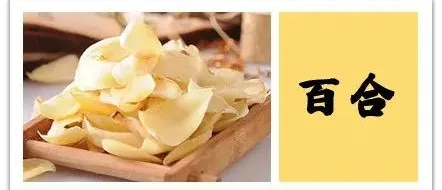
Bai He (Lily Bulb) has a sweet and slightly bitter, slightly cold nature. It enters the heart and lung meridians. It has the effects of nourishing Yin, moistening the lungs, and calming the mind. It is used for chronic cough due to Yin deficiency, phlegm with blood, late-stage febrile diseases, residual heat, or emotional disturbances leading to restlessness, insomnia, and skin abscesses. Caution should be taken for those with wind-cold cough or cold-induced loose stools.
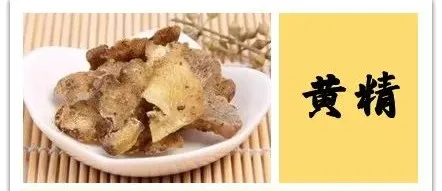
Huang Jing (Polygonatum) is a dried rhizome of the plants Dian Huang Jing and Huang Jing or Multi-flowered Huang Jing. Depending on its shape, it is commonly referred to as Da Huang Jing (Large Huang Jing), Ji Tou Huang Jing (Chicken Head Huang Jing), or Ginger-shaped Huang Jing. The “Compendium of Materia Medica” states: “Huang Jing is a superior product for nourishing the middle, benefiting Qi, harmonizing the five organs, strengthening the muscles, and solidifying the bones, all of which contribute to Yin nourishment.”
Huang Jing has a sweet and neutral nature, entering the spleen, lung, and kidney meridians. It nourishes Yin, moistens the lungs, benefits the spleen, and fills the kidneys, primarily used for cough due to Yin deficiency, dry cough due to lung dryness; spleen deficiency with fatigue, dry mouth, thirst; kidney deficiency with soreness of the lower back and knees, impotence, nocturnal emissions, tinnitus, premature graying of hair, and weakness. Caution should be taken as Huang Jing is greasy in nature and may promote dampness, thus it is not suitable for those with spleen deficiency and dampness, excessive phlegm, or cold-induced diarrhea.
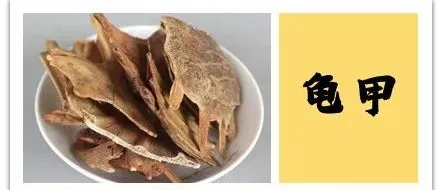
Gui Jiao (Tortoise Shell) is derived from the carapace and plastron of the turtle. It has the effects of nourishing Yin, subduing Yang, benefiting the kidneys, strengthening bones, nourishing blood, and stabilizing menstruation. It is commonly used for Yin deficiency with tidal fever, bone steaming, dizziness, internal wind, weakness of the muscles and bones, forgetfulness, and excessive menstruation.
Gui Jiao and Bie Jiao (Soft-shelled Turtle Shell) can both nourish Yin and clear heat, subduing Yang and calming internal wind, used for treating Yin deficiency with fever, Yin deficiency with Yang hyperactivity, and Yin deficiency with internal wind. Gui Jiao is particularly effective for nourishing Yin, while Bie Jiao is less commonly used. Bie Jiao is more effective for softening and dissipating masses, often used for treating abdominal masses and malaria, while Gui Jiao does not have this effect.
Others include: Sang Shen (Mulberry), which nourishes blood and Yin, generates fluids and quenches thirst; Mo Han Lian (Eclipta), which benefits the kidneys and nourishes Yin, cools the blood and stops bleeding; Nu Zhen Zi (Ligustrum), which nourishes Yin and clears heat, benefiting the liver and kidneys; Zhi Mu (Anemarrhena), which nourishes Yin, descends fire, moistens dryness, and promotes bowel movements; Gou Qi Zi (Goji Berries), which nourishes the liver and kidneys, benefits essence and improves vision; Shan Zhu Yu (Cornus), which nourishes the liver and kidneys, and secures essence.
There are many Chinese patent medicines for Yin deficiency, and it is essential to differentiate and select appropriately. For symptoms such as dizziness, tinnitus, lower back and knee pain, insomnia, and night sweats due to liver and kidney Yin deficiency, Li Wei Di Huang Wan (Six Flavor Rehmannia Pill) can be selected; for Yin deficiency with excess heat, Zhi Bai Di Huang Wan (Anemarrhena and Rehmannia Pill) or Da Bu Yin Wan (Great Tonifying Yin Pill) can be chosen; for true Yin deficiency, Zuo Gui Wan (Left Return Pill) is recommended; for insomnia due to heart Yin deficiency, Tian Wang Bu Xin Wan (Heavenly Emperor’s Heart-Supplementing Pill) is suitable; for cough due to lung and kidney Yin deficiency, Bai He Guo Jin Wan (Lily Bulb and Golden Pill) or Yang Yin Qing Fei Wan (Nourishing Yin and Clearing the Lungs Pill) can be used; for stomach pain due to Yin deficiency, Yin Xu Wei Tong Jiao Nang (Yin Deficiency Stomach Pain Capsule) is recommended.
-END-

This article is an original work by “PSM Yao Dun Public Welfare”. For reprints, please leave a message.
Reviewed by: Qiu Kaifeng, Wu Junyan, Sun Yat-sen Memorial Hospital, Sun Yat-sen University



Search for articles related to Yin deficiency.

